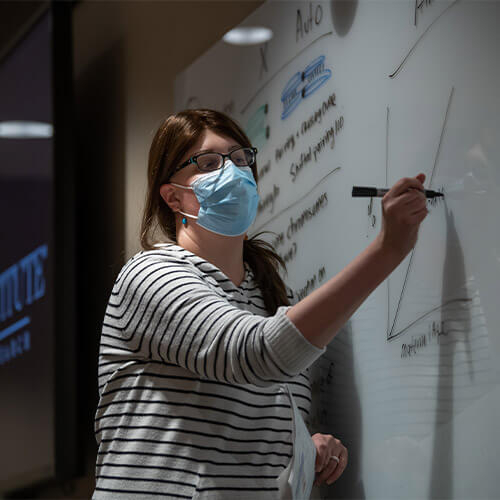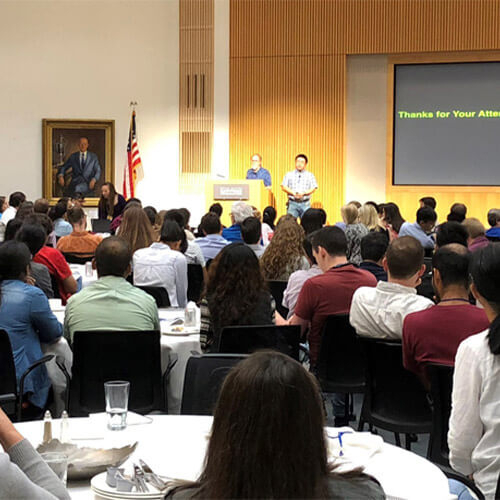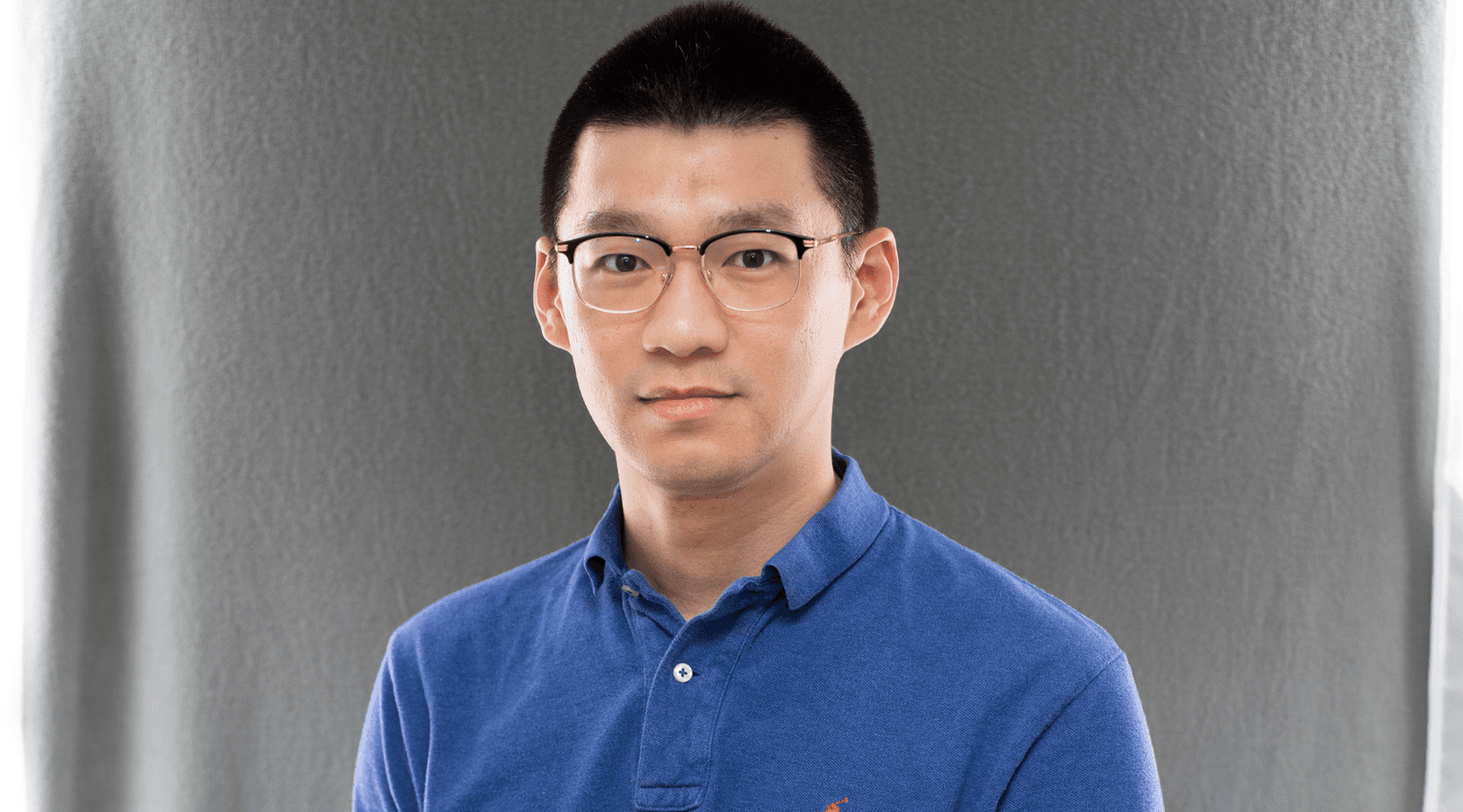Research Technician
Mashruwala Lab
A collegial community of fellow scientists and support staff

Postdocs have opportunities to interact frequently with their peers through numerous postdoc-specific events and resources.
The Stowers Institute is dedicated to equipping the next generation of scientists with the tools they need to succeed. In our #PostdocProfile series we interview our remarkable postdoctoral researchers to discover what led them to the Institute and why they decided to pursue a career in science. Learn more at the link below.

Postdoc Meetups are an opportunity for postdocs to convene as a community to relax and exchange ideas and experiences. Monthly Postdoc Meetups alternate between informal gatherings and more formal informational sessions presented by faculty or alumni on topics relevant to postdocs and their careers.

The annual postdoctoral retreat is a dynamic day of keynote speakers, research presentations, and social activities aimed at fostering greater camaraderie and collaboration amongst the postdoc community.

Stowers postdocs benefit from EDGE Talks, a seminar series presented by postdocs, for postdocs. The monthly EDGE Talks have a flexible format where the time can be used by the presenting postdoc in the way that best meets their needs. Postdocs sign-up by choice and have the flexibility to use the time in a way that would best benefit them.

Stowers Crossroads is an Institute committee focused on enriching scientific and professional development and connecting the Stowers research community. Predoctoral and postdoctoral researchers and scientific staff who are elected to serve on the Crossroads Committee provide a voice for their respective constituencies and a means for Stowers to address their evolving needs. Crossroads coordinates the popular Crossroads Research Conference, an internal multi-day research symposium where Stowers scientists showcase their research, as well as the annual Career Exploration Day conference. Crossroads also coordinates informal round-table interactions where trainees can discuss career-related topics of their choosing with faculty.

Stowers postdocs have the opportunity to be paired with a more senior postdoc as a peer mentor upon commencing the postdoctoral training. This program strives to introduce incoming postdocs to some of the features of the Stowers Institute in an informal way and help postdocs connect within the Stowers community. Peer mentors can be a source of support and guidance throughout postdoctoral training. As a postdoc becomes more senior themselves, they can also participate in the program by mentoring more junior postdocs.
The primary objective of postdoctoral training at the Stowers Institute is to gain the training, experience, skills and professional network required to succeed as an independent scientist. Maintaining a balance that enables development of each of those areas requires communication and alignment between the postdocs and their mentoring team, as well as advanced planning and organization. Stowers strives to empower postdocs to take ownership of their training experience and their career with recommendations for achieving success.




Principal Investigator, Shanghai Institute of Biochemistry and Cell Biology, China
I love the Stowers Institute because it combines leading science with a wonderful place that has a true sense of community. Being in the Stowers postdoc program brought me into contact with high profile researchers doing interdisciplinary work and exposed me to new methodologies. The experience at the Institute helped me to learn to communicate with colleagues of different backgrounds and discover new angles to work on important and challenging problems.
”Assistant Professor, Baylor College of Medicine
Choosing to complete my postdoctoral training at the Stowers Institute was one of the best professional and personal decisions I’ve made. The resources at the Institute allowed me to take risks and pursue ambitious projects, including developing new tools in collaboration with the technology cores. I’m not sure that the experiments I proposed could have been completed on the same timeline anywhere else. This freedom and support to pursue ambitious projects and big questions in biology made it easy to build a foundation for my own research group and made me a very competitive applicant for independent positions.
”Principal Investigator, Westlake University, China
The experience and training at the Stowers Institute provided far-reaching significance for my career and vision. The whole Institute was organized systematically to make individual research better. What we focused on was first and foremost was doing great science and making the Institute a better place.
”Associate Professor, Amherst College
Besides the excellent facilities, the Stowers Institute attracts visionary scientists who all together create an environment where thinking outside the box is strongly encouraged. This allowed me to pursue questions in poorly investigated systems and create a research framework at the interface of new biology and my own scientific interests.
”Interested candidates can email their curriculum vitae and bibliography, along with a cover letter outlining their background and career objectives, to the principal investigator whose area of research matches their academic interest.
More information about open positions can be found at Careers.
News

24 May 2024
Q&A with Wei Wang, a postdoctoral researcher in the Yu Lab
Read Article
News

12 April 2024
"Science is hard, but so cool! Especially a field as complicated as biology! Stay humble, objectively interpret the data, and always cross validate your findings."
Read Article
